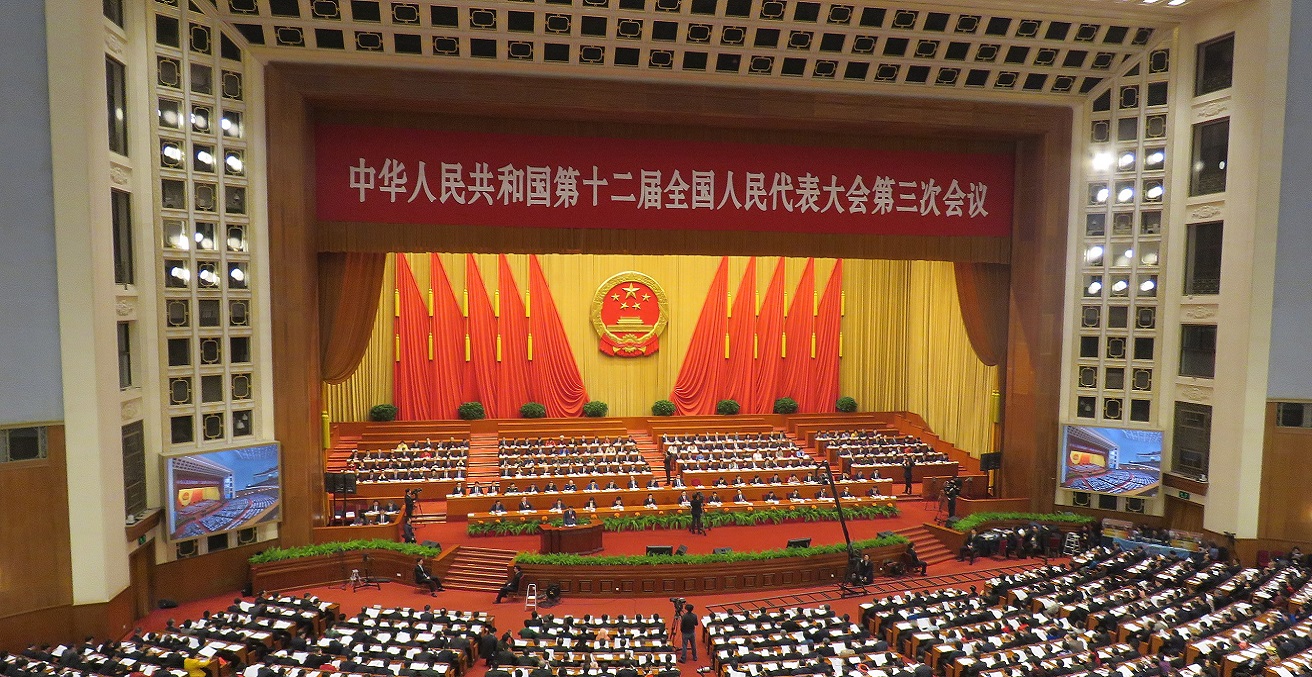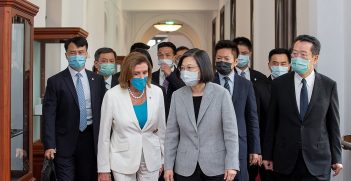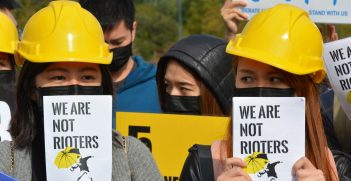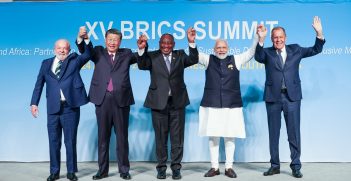China’s Five-Year Rule of Law Plan: Implications for Hong Kong and Beyond

The Chinese Communist Party has enacted a five-year plan for the construction of a rule of law. It has been instrumental in maintaining its political supremacy and has had significant implications for Hong Kong.
On 10 January 2021, the People’s Republic of China’s (PRC) enacted its first five-year plan for the construction of a rule of law. Its objective is to shape a “Chinese socialist rule of law” by 2025 and achieve a fully formed version by 2035. This ambitious plan is the first of its kind in many respects. It is the first publicly available document stating the principles, contents, and procedures of a constitutional review by the Standing Committee of the National People’s Congress (NPC). The NPC is the national legislative body of the PRC, and its Standing Committee is the Congress’ permanent voting organ, which has a significant say in legislative and constitutional deliberations – with the Supreme People’s Court in Beijing also reporting to the NPC. The five-year plan is also the first public document calling for the enactment of a unified Chinese Administrative Law.
The plan also reveals a deep commitment to “accelerate the construction of a legal system applicable outside the jurisdiction of our country.” This is a significant development in Chinese foreign policy, and is largely under-reported and under-analysed in the West. The plan is of paramount importance to understanding the Communist Party of China’s (CCP) future legal engagement with the rules-based international order.
Hong Kong
A major priority for the plan is the governance and regulation of Hong Kong. It expressly seeks to, “promote the reunification of the motherland […] adhere to the rule of law in Hong Kong […] and uphold the Constitution and Basic Law.” It also highlights the CCP’s intention to “prevent and oppose the interference of external forces in Hong Kong […] and maintain the long-term prosperity and stability of Hong Kong.” This strategically ambiguous phraseology marks the continuation and evolution of the CCP’s existential “legal” war on political dissent. In the name of the rule of law, the CCP has nullified Hong Kong’s separation of powers, arbitrarily denied bail, conducted trials without juries, and closed public galleries for cases involving “state secrets or public order.”
These features are predicated upon the “Xi Jinping Thought” regarding the rule of law, which states: “[T]he practice of the rule of law in China and abroad shows that there is no rule of law beyond politics….’political neutrality’ and the judiciary as ‘judges belong to no party,’… is nothing more than a set of self-deceptions.” For the CCP, Western constitutionalism and its conception of the rule of law amount to nothing more than a “rhetorical trap.” This was seen with the infamous Document Nine’s seven taboos, which were allegedly approved by President Xi. The first and foremost taboo is “Western constitutional democracy,” with the separation of powers and independent judiciaries specifically denounced as “capitalist class concepts.” Hence, this is why the PRC’s judicial agencies are coordinated by the “Political-legal Committee” of the CCP.
The rule of law plan also ominously states an intention to “strengthen law enforcement cooperation and judicial assistance between mainland and Hong Kong […] to jointly crack down on cross-border illegal and criminal activities.” Under the National Security Law (NSL), the CCP can choose specific judges to handle politically sensitive cases, and have the cases heard on the mainland. With serious backlogs in the Hong Kong courts due to the arrest of over 10,000 citizens during the 2019 pro-democracy protests, we can expect to see the CCP utilise its legal infrastructure – in accordance with the plan – to implement its political rule. In fact, the director of the Office for Safeguarding National Security has explicitly stated that Hong Kong’s judicial system should, “reflect the will and interests of the Chinese nation.”
As seen with Hong Kong, the CCP’s conception of a rule of law is instrumental in maintaining the CCP’s political supremacy. This can be seen with the NSL, which stipulates that “any acts or activities” that the CCP considers to be endangering the PRC’s national security may be criminalised. In June 2020, it became a criminal offence to insult the national anthem of the PRC, and earlier this year Hong Kong police made their first arrest under the law. The offense? A 40-year-old man “booing” the PRC’s national anthem at a shopping centre during the Olympics. This is reflective of the plan which states “[T]o build a rule of law in China, we must always regard the party’s leadership as the most fundamental guarantee of the socialist rule of law.” The effects of this for Hong Kong can now be seen with Article 1 of the Hong Kong Constitution, which states,“[T]he defining feature of socialism with Chinese characteristics is the leadership of the CCP.”
Furthermore, key judicial figures in Hong Kong are being targeted under Beijing’s new rule of law. Paul Harris, chairman of the Hong Kong Bar Association, has been repeatedly lambasted by Chinese officials, state media, and Hong Kong’s leader, Carrie Lam, for representing attendees of the 2019 pro-democracy protests. The South China Morning Post labelled his position of chairman a “poisoned chalice.” Meanwhile, Barrister Martin Lee, considered Hong Kong’s “father of democracy,” was arrested under the NSL and is no longer available for media interviews.
Such orchestrated attacks upon the institutions of Hong Kong’s vaunted common law system have been, and will continue to be, economically costly for all involved. The Heritage Foundation’s 27th edition of the Index of Economic Freedom no longer lists Hong Kong as a separate and autonomous legal system from the PRC, lowering its ranking of the freest economy in the world to 107th out of 178 counties examined. The human costs of such a warped conception of the rule of law, however, remain immeasurable.
Conclusion
To Western eyes, the PRC’s rule of law plan is deeply flawed and seems unlikely to evolve into an internationally respected rule of law. Without a strong separation of powers, “law-based governance” can never be anything more than “law by the CCP.” This is exemplified by the CCP’s attitudes towards the rule of law in Hong Kong. The National Security Law has led many to question whether a rule of law is the PRC’s goal at all, or merely the promulgation of a doctrine that provides justification for carrying out its hegemonic ambitions. Readers will do well to remember Xi Jinping’s words, “east, west, south, north and centre; the party leads everything.”
Scott Reid is a Juris Doctor student at Monash University and recently completed an internship with the International Bar Association. He has worked for the Parliament of Victoria and attended the AIIA’s study tour of Indonesia in 2019.
This article is published under a Creative Commons Licence and may be republished with attribution.





